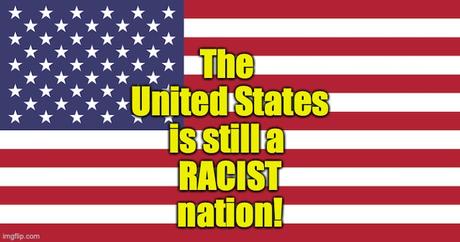
We have learned in the last few days that the Coronavirus, while not a respecter of race, is hitting minorities harder than whites. Minorities (especially Blacks) are dying in larger percentages. Why?
Those minorities are not more susceptible to catching the virus. Why then are they dying in larger percentages? The answer, whether we want to admit it or not, is because the United States is still a racist nation. And our racist institutions mean that too many minorities are forced to live in poorer neighborhoods, have lower paying jobs, and are uninsured in larger numbers. All the Coronavirus did was to expose the continuing racism in this country.
The following is part of an article in Mother Jones:
A few weeks ago, a thought woke Camara Jones up in the middle of the night. It was about the coronavirus. That’s commonplace these days, but Jones is a family physician and epidemiologist who worked at the Centers for Disease Control and Prevention, where among other things she studied racial bias in the medical system. Her thoughts on a pandemic are anything but commonplace. The coronavirus had revealed something essential about the workings of race in America. “The thought that woke me up,” she told me over the weekend, “is that the most profound aspects of racism operate without bias and without stigma.” What she means is that racism in its most pernicious form slides by on deniability, without any of the telltale oafishness with which more ordinary forms of prejudice announce themselves. Left in its wake are lopsided outcomes that are made to look like the natural order of things. Nothing illustrates that dynamic better than a pandemic that is wrongly said to be “the great equalizer.” “This disease,” she says, “is not an equal-opportunity disease.” Black people are contracting the coronavirus and dying from the disease at higher rates than other people. This disproportionate effect is a social issue in the guise of an epidemiological one. Black Americans, particularly in the Southern states that have not expanded Medicaid under the Affordable Care Act, are more likely to be uninsured. They’re more likely to work a low-paying job. They’re more likely to suffer from heart disease, asthma, cancer, and other conditions, not—as Jones takes pains to emphasize—because of biology. It’s because of straightforward social choices such as where toxic dumps get sited, where new highways get built, and where Black people have historically been permitted to live. It will be hard to fully grasp the scale of disparities in coronavirus outcomes. Cities and states thus far have been slow to collect data by race and ethnicity. From what we know now, though, the pattern is troubling. In Chicago, for instance, 69 percent of people who have died from the coronavirus as of April 8 are Black, even though they make up 32 percent of the city’s population. In Michigan, where an outbreak has gripped Detroit and where Black people make up 14 percent of the population, they represent 40 percent of deaths. In Louisiana, where an outbreak has rattled the New Orleans area, 70 percent of those who have died are Black. In Alabama, Black people make up 27 percent of the state’s population but 52 percent of those who have died from coronavirus. In Mississippi, where Black people make up 38 percent of the population, they makeup 56 percent of coronavirus infections and 72 percent of deaths. And as ProPublica reported, Black residents in Milwaukee County, who make up 26 percent of the county’s population, constitute half of its COVID cases and 81 percent of its deaths. In New York City, Black residents make up 22 percent of the population and 28 percent of deaths. In Los Angeles, though early data is limited, Los Angeles County public health director Barbara Ferrer reports that Black people “have a slightly higher rate of death than other races.” Jones sees the effects of racism everywhere in the coronavirus outbreak. She points to the way the disease has ravaged jails and prisons, which are disproportionately Black because of disproportionate policing. In Chicago, for instance, 238 inmates and counting at Cook County Jail have contracted the disease. In Louisiana, five people have died of coronavirus as 42 inmates and staffers have contracted the disease. At the jail complex in New York’s Rikers Island, more than 160 inmates have contracted the disease, including one who died while serving a parole violation.

